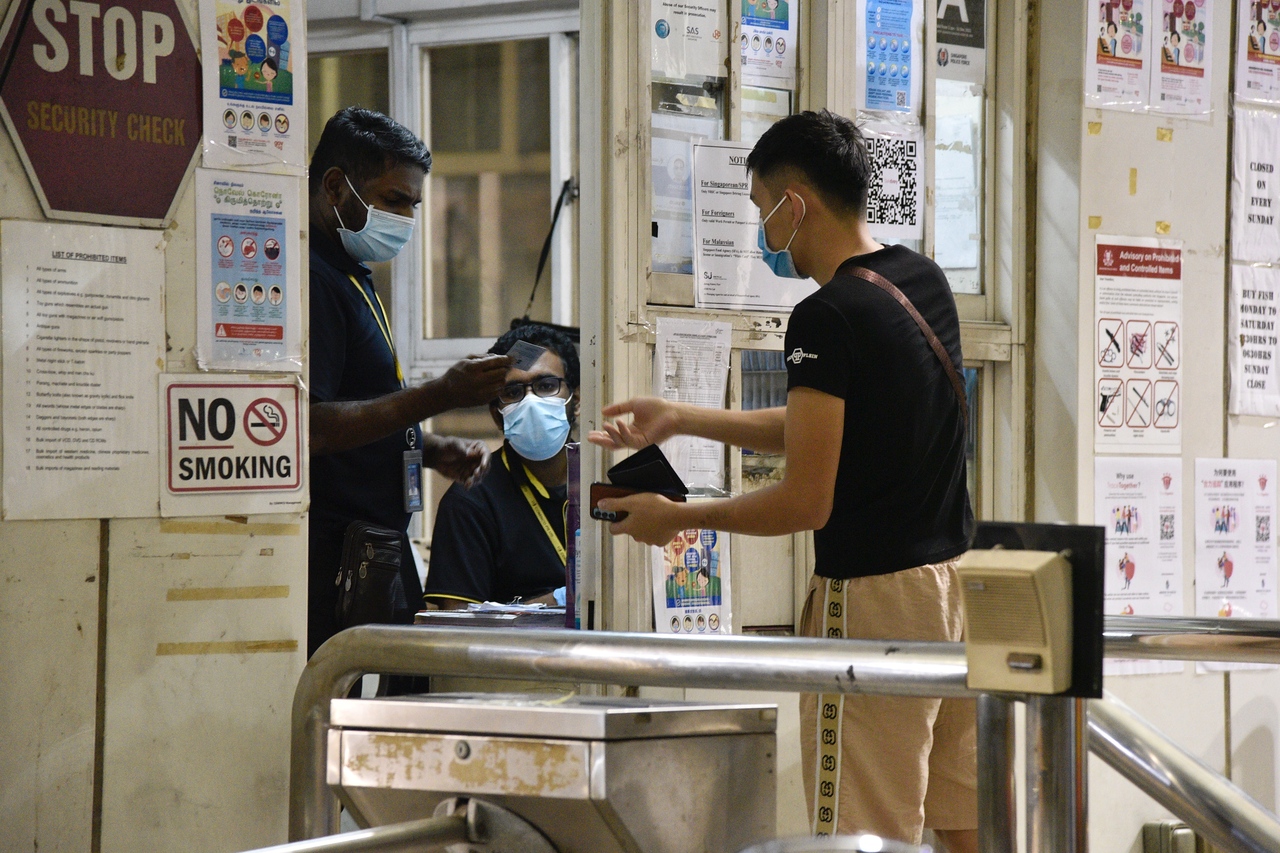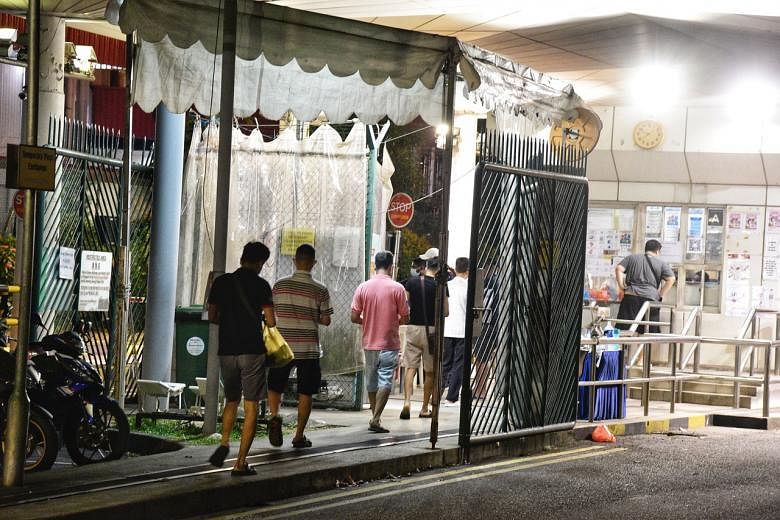SINGAPORE - The wholesale market at Jurong Fishery Port (JFP), epicentre of the largest active Covid-19 cluster here, reopened for business on Monday (Aug 2) after a two-week closure.
Enhanced safe management measures (SMMs) were enforced strictly as workers and lorries carrying large plastic boxes and bins made their way in when The Straits Times visited at 8.30pm.
One worker found himself locked out as he did not possess an orange band which allowed entry into the premises.
Mr Yee Yong En, a 23-year-old Malaysian, told ST that he had been waiting outside the security gate for an hour. He works as an assistant at a market stall in JFP that sells fish such as stingray, grouper and mackerel.
"Security is now tighter (at JFP). My boss told me to wait for him to issue the orange band as without it, I cannot enter," he said in Malay.
He was among the many workers at the fishery port quarantined in hotels for the past two weeks.
More than 1,000 Covid-19 cases have been linked to JFP as at noon last Saturday (July 31).
Mr Yee, 23, showed ST an electronic letter from MOH on his mobile phone declaring him Covid-19-free.
JPF had reopened on Saturday (July 31) after two rounds of deep cleaning of the entire site, the (SFA) said in a Facebook post on Sunday.
"As tenants and trade visitors adapt and adjust to the enhanced SMMs, there may be initial issues and delays and we will work closely with trade associations, tenants and workers to review and finetune the processes where necessary," it added.
JFP handles roughly 30 per cent of the country's seafood imports, including those that arrive by land and air. It has more than 100 merchants and attracts up to 3,000 customers daily.
Most workers, fishmongers and tenants would be returning to work on Monday night, said Mr Ang Jwee Herng, president of the Singapore Fish Merchants' General Association.
Some, however, are still serving quarantine orders. Others have chosen not to return to work yet for fear of getting infected, while others are unsure of SFA's new measures, Mr Ang said.
He added: "The tenants and workers told me they will be more careful with following the measures such as wearing their masks properly and not talking while smoking to prevent another cluster at the port.
"Though the stricter measures are inconvenient, they understand the importance of sticking with it as there are a lot of people at the port each day and they want to be able to continue business."
Minister for Sustainability and the Environment Grace Fu said in Parliament on July 26 that the Jurong Fishery Port outbreak was likely to have been caused by workers mingling and not wearing masks.
The new measures require port workers to keep their distance from the foreign crew as they unload the goods.
They can pick up the goods only after the crew members leave the unloading area.
To limit interaction with foreign fishing crew, dedicated workers will operate forklifts or cranes within the wharf area to move seafood from the vessels to the gates for collection by port workers.


All workers must also follow a hand sanitation regime and wear their masks and gloves when they pick up the goods.
All unloading activities will be supervised by safe distancing ambassadors and monitored on closed-circuit television.
SFA had earlier also said it would continue to clean JFP's common areas and crates at regularly.
Someone who is not returning to work at the wholesale market on Monday is Mr Goh Thiam Chwee, 58. The managing director of Kah Huat Song Kee Fish Agent has a few days left in quarantine.
Mr Goh, who is also honorary secretary of the Singapore Fish Merchants' General Association, told ST without giving specifics: "It was a 100 per cent loss for me as I couldn't sell fish and still had to pay my workers' salaries and rent.
"Each day, I can sell about a tonne of seafood. In total, we lost out on 10 tonnes of seafood during the closure."




